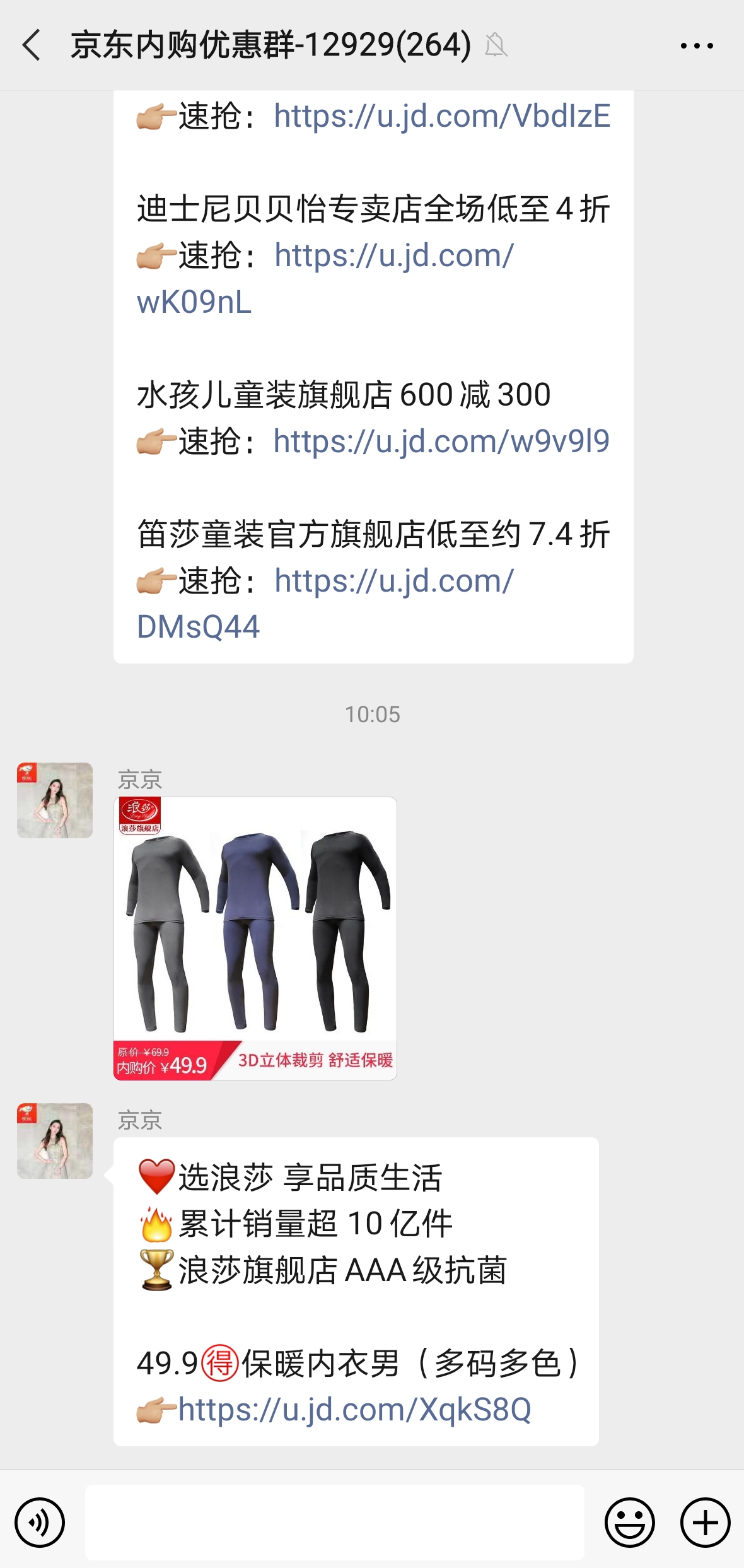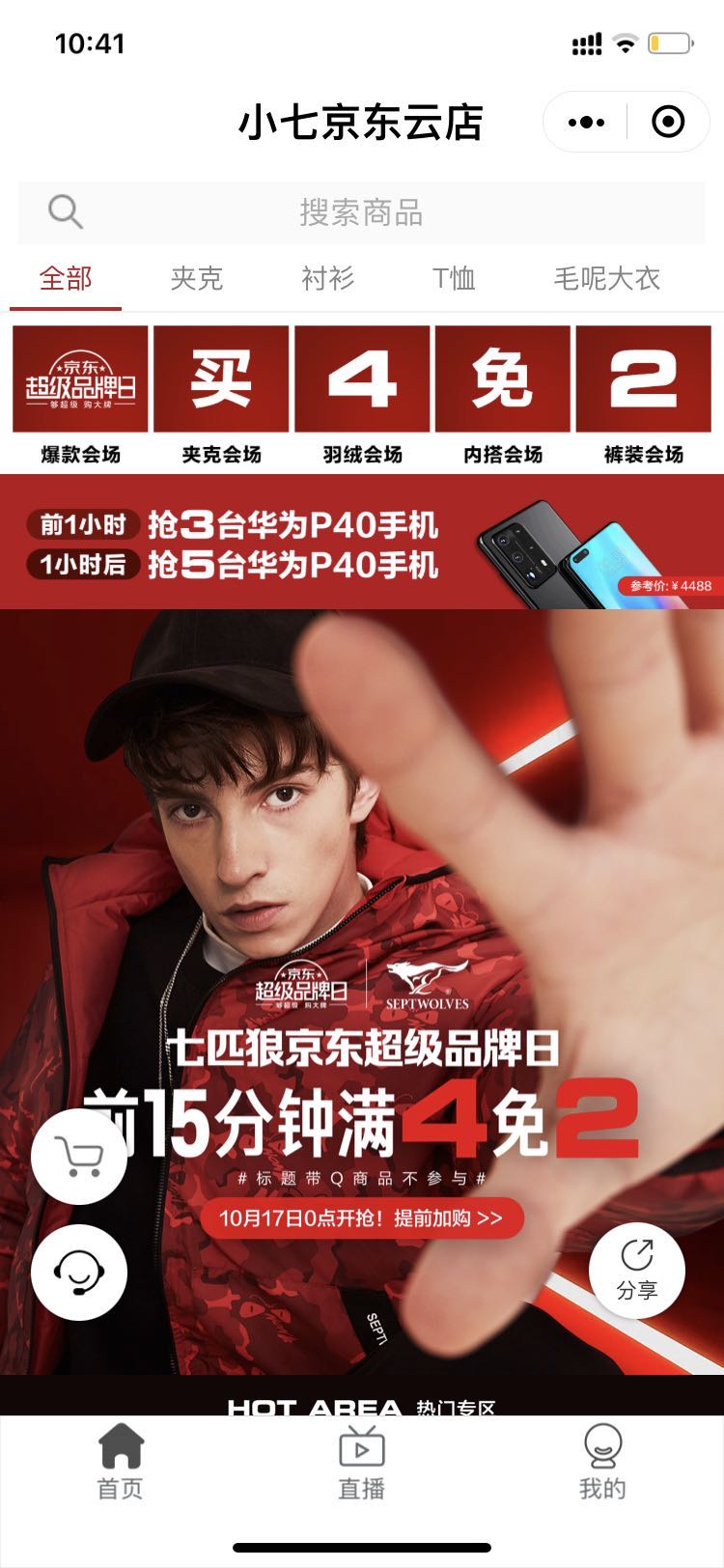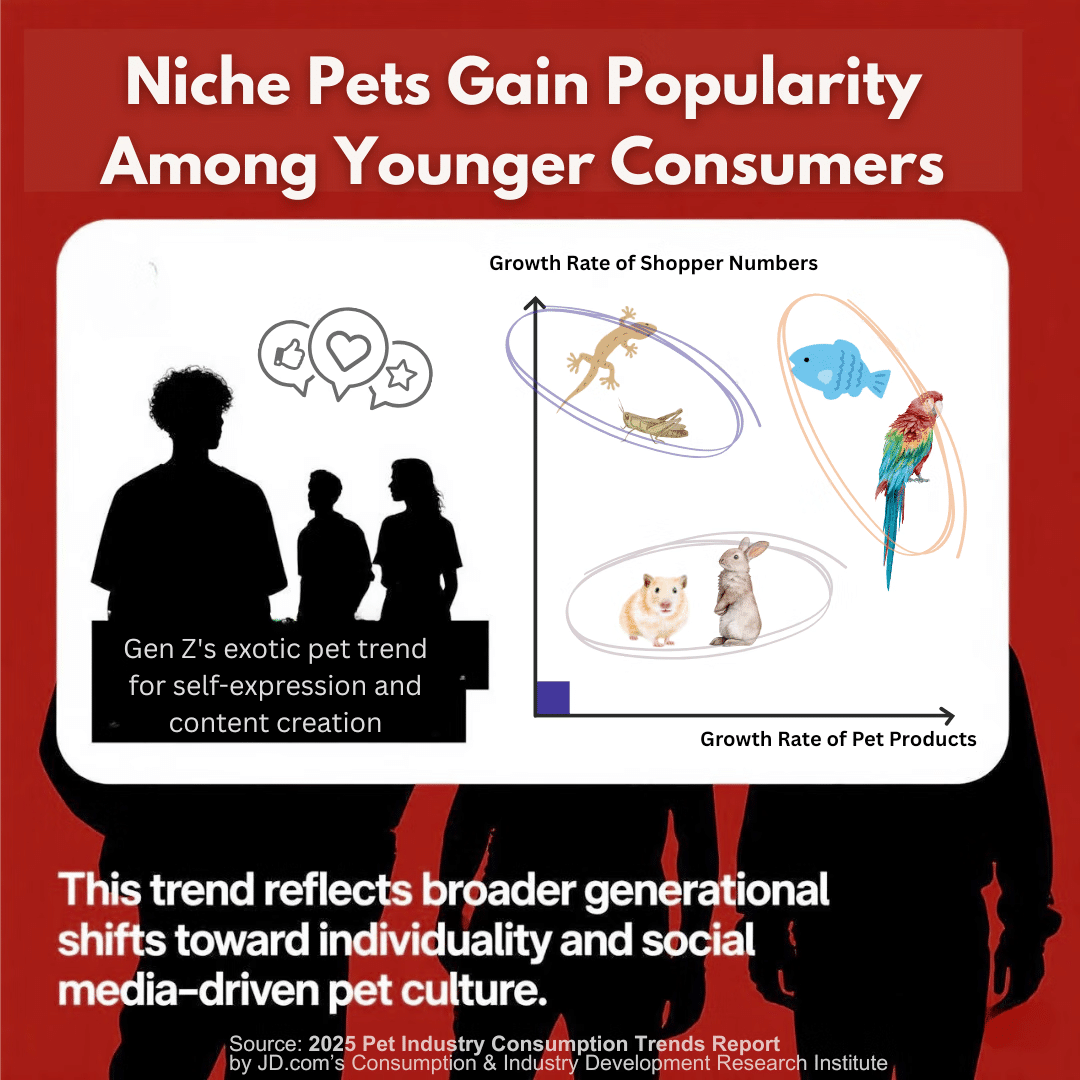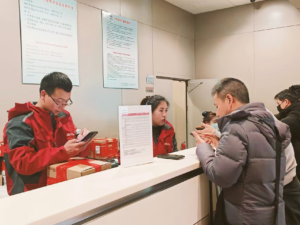Oct 16, 2020|
In-depth: Social Group Ecommerce Reveals a “Blue Ocean”
by Rachel Liu
COVID-19 has profoundly affected many people’s daily lives, especially those whose work relies heavily on human interaction and travel. Let’s take a look at the stories of three people whose lives have changed as a result of the pandemic, and how JD’s social group e-commerce program played a role:
- Weiwei is a sales person at China’s leading travel agency China Youth Travel Service. When travel came to a standstill at the height of the pandemic earlier this year, she stayed at home with nothing to do for months. Her income was significantly affected, and her financial stress increased. She started to consider part-time work, and soon discovered an opportunity to work as JD’s “shopping promoter” in WeChat groups to recommend high-quality products sold on JD to acquaintances and earn rebates. With experience in sales and as a loyal customer of JD, Weiwei thought she could test the platform. In just two months, she earned over RMB 8,000 yuan working from home and greatly lifted her financial stress.
- Liping is a sales person at an offline home furnishing chain store, and her income relies heavily on commission. During the epidemic, the mall where her store is located shut down, which meant no sales—or income. At that time, the mall joined JD’s cloud store solution, which is part of JD’s social group e-commerce initiative and allows store owners to launch their stores online as fast as within three days. After the store was launched online, Liping started to generate orders again by sharing the store’s products and sales information in WeChat groups.
- Xiaolong Wu is an apple planter in Gansu province of Western China. His family owns an orchard of 120 acres which can produce up to 40,000kg of apples annually. When the pandemic accelerated, the massive harvest of apples sat in the village. “At that point, we knew that if we couldn’t have the apples sold by the end of May, they would all rot,” Wu said. He began desperately looking for ways to sell the apples, and saw that JD’s social group ecommerce project had an initiative to help farmers. He signed up for the initiative and within just a few days, the apples were sold out under the recommendation of JD’s sales promoters around the country, spreading the news in WeChat groups that were part of JD’s social group e-commerce initiative. Then, JD’s supply chain network—which remained fully functional during the pandemic— helped Wu deliver his apples out of the village to customers.
Weiwei, Liping and Xiaolong all tackled COVID-19 challenges by finding new opportunities through JD’s social group ecommerce initiative, which allows anyone to become a JD shopping promoter by forming WeChat groups from their private network, and then sharing products and exclusive deals that are only available through the program. Now, JD has over 2 million WeChat groups for social ecommerce, which is the largest scale among ecommerce platforms. The idea is not brand new in China, but the pandemic has put it under spotlight, as social ecommerce provided many people and brands with new opportunities amidst the pandemic.
Why social group ecommerce?
Social group ecommerce is based on social groups, a group of people gathering together online for a reason: whether it be for the same hobby, the same goals or just because they live in the same neighborhood. As WeChat is the largest messaging app in China, these groups often gather there. Unlike traditional ecommerce shopping, social group ecommerce combines shopping with social interaction. The group leader is usually someone the group members know offline – imagine how much easier it is to trust a product recommended by an acquaintance, rather than a celebrity in a TV commercial. The group leaders can work with ecommerce platforms that provide products and supply chain to recommend the products to the group members, which means they can open an entirely virtual store just by forming a group. The social groups are not just a place to sell products, but also a place for the group members to share their common interests and have discussions, which help the groups stay active. Anyone can become an influencer for shopping among their social networks.

A JD social ecommerce group
Take Yue Wang as another example. Wang is a former JD courier who used JD’s social group ecommerce to make real changes in his life. While working as the head of a delivery station in Zhengzhou, Henan province, Yue took on extra work as a shopping promoter in June 2019 to recommend high-quality products to the contacts he made from delivery work. He put a lot of efforts into operating his social groups, and invited his wife to help him. They shared their own shopping experiences and product reviews, interspersed with social interaction with the group including chatting about the weather and other interesting news. Wang also actively shared his experience and insights with other couriers, and has encouraged over 400 couriers to join the project. Through his hard work, he was promoted as the ecommerce program’s city manager at the end of 2019. The extra money he made through social group ecommerce was as high as 20% of his income as a courier.

Yue Wang
“I think this is a great model because as a customer I know that JD has high-quality products and great services, which makes me want to recommend it to the people around me,” Wang said. “As a shopping guide, I made extra income in my free time and strengthened my contacts with friends and clients, so I also want to encourage more of my peers to join the program. Seeing that my colleagues’ lives are all getting better gives me a great sense of fulfillment.”
For customers, social group ecommerce has gained popularity because the products shared in the groups usually have more competitive prices., This is very attractive to cost-conscious consumers such as young mothers, female and middle aged customers—particularly as people have become more conscious about spending money during the pandemic. From the perspective of brands, merchants and ecommerce platforms, the program provides an opportunity to leverage sales promoters to share products, attract new customers and improve brand recognition at lower cost. The numbers speak for themselves: In Q2 2020, the initiative brought over 2 million new customers to JD.
What’s more, according to the 2019 China Social Group Ecommerce Annual Report, social group ecommerce can generate higher ROI and customer loyalty. The ROI of social group ecommerce can be two times higher than traditional social ecommerce (one person sharing products to several friends) and over 50 times higher than ecommerce platforms. The report also shows that in the next three years, the market for social group ecommerce will surpass RMB 1000 billion yuan – a field with high potential.
What does social ecommerce mean for JD?
Flashing back to June 2018, at that time, many merchants on JD were looking for new ways to attract more customers outside the highly competitive JD platform. JD’s merchant operations team observed that JD Home, JD’s offline retail experience store, had formed WeChat groups for frequent customers to share products in the group chat, a practice that customers seemed to appreciate. JD’s merchant operations team thought it was a good tactic, and advised merchants to give it a shot. This was ultimately the starting point for JD’s social ecommerce business.
JD’s social group ecommerce soon developed into two models: One is to work with individual shopping guides to encourage them to share JD’s products through the social ecommerce program; the other is to work with brands and merchants to build online stores for their own sales representatives to share products. JD provides comprehensive support for partners from product selection, big data, operations and marketing. JD’s product selection team provides professional advice for partners from different industries on product selection, and JD’s AI technology can make the process faster and easier. Data generated from years of ecommerce experience will help partners to better manage their stores. JD also developed easy tools for partners to build online stores through WeChat mini-programs and build customer management systems.
 A cloud store on WeChat nini-program
A cloud store on WeChat nini-program
JD’s social group ecommerce soon took off. In December 2018, it helped a popular Chinese home furnishing brand generate about RMB 1.8 million yuan of sales in their annual promotion through launching online stores. At JD’s annual Home Furnishing Exhibition in September 2019, the social group ecommerce team found it was a good opportunity for business development, as people who went to the exhibition all had the same interest in home decoration. In the end, the exhibition led to the forming of 20 social ecommerce groups and generated sales of nearly RMB 7 million yuan. From October to November 2019, the number of JD’s social ecommerce groups increased from 40,000 to 200,000. On Singles Day (November 11th) 2019, sales generated from social group ecommerce reached as high as RMB 393 million yuan.
Although social group ecommerce was already thriving, COVID-19 accelerated expansion even more. “The epidemic encouraged many customers to develop the habit to shop online,” said Geng Zhang, a manager of JD’s social group ecommerce initiative. “They are spending more time at home and are more willing to join WeChat groups and make new connections with people. During the epidemic, the number of our social groups grew from 1 million to 1.7 million. We gathered more shopping guides as many people were looking for ways to make up for their lost income. More brands began to partner with us too for sales channels. Last year we only had 90 brand partners, but now we have over 400.”
The social group ecommerce initiative has also increased JD’s brand recognition in lower tier cities. JD data shows that 58% of shopping guides are from third-tier cities and below, and they are usually female from 30 to 50 years old. Nearly 50% of social group ecommerce customers are from third-tier cities and below. “Although we were not thinking of developing lower-tier markets when we first started to do the business, we began to found that it is an effective way to attract customers in this market, because the sales promoters can invest more time on operations, and the social ties are stronger in smaller cities,” Zhang said. “It is a lovely surprise for us.”
Zhang and his colleagues are finding new ways to make the future of social group ecommerce brighter. They recently set their sights on livestreaming. They want to enable sales promoters and brand partners to do livestreams in WeChat mini-programs through JD Live, and also work with more livestreaming platforms to increase exposure. “Now the livestreaming platforms are all relying on public traffic, which means your audience are people you don’t know in real life,” Zhang said. “Livestreaming through social group ecommerce is a combination of public traffic and private traffic, and you will be able to do livestreams for your friends, relatives and people you have strong connection with in real life – imagine how much potential it can have. We are seeing a blue ocean and are so ready to explore.”





 This Harbin tourism boom has also spurred a surge in sales of winter apparel. JD.com’s data indicates a rapid growth in the sales of warm clothing items such as down jackets, snow boots, and thermal underwear between January 1st and 7th. The sales growth is especially pronounced in southern provinces and cities such as Jiangsu, Zhejiang, Guangdong, Sichuan, and Shanghai. Notably, tall snow boots registered a 206% year-on-year increase in transactions, while padded cotton caps and thickened long down jackets soared by 158% and 134%, respectively. Beyond clothing, travel gear has also seen a considerable uptick, with a 98% year-on-year growth in transactions for large suitcases and travel backpacks in these southern regions.
This Harbin tourism boom has also spurred a surge in sales of winter apparel. JD.com’s data indicates a rapid growth in the sales of warm clothing items such as down jackets, snow boots, and thermal underwear between January 1st and 7th. The sales growth is especially pronounced in southern provinces and cities such as Jiangsu, Zhejiang, Guangdong, Sichuan, and Shanghai. Notably, tall snow boots registered a 206% year-on-year increase in transactions, while padded cotton caps and thickened long down jackets soared by 158% and 134%, respectively. Beyond clothing, travel gear has also seen a considerable uptick, with a 98% year-on-year growth in transactions for large suitcases and travel backpacks in these southern regions. JD Boosts Forbidden City’s Efforts to Promote Traditional Chinese Culture
JD Boosts Forbidden City’s Efforts to Promote Traditional Chinese Culture



